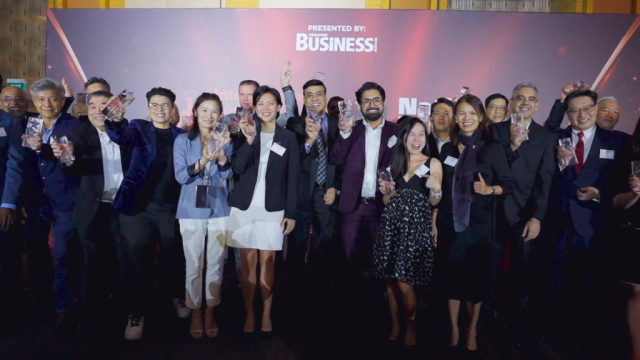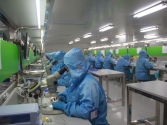Saving PMET jobs from machines
By Joshua YimPMET jobs are under threat. We know we are living in precarious times. Human beings have lost their jobs to machines ever since the Industrial Revolution and today, this is happening at an unprecedented pace.
We are in an age where disruptive technologies are dismantling traditional brick-and-mortar businesses by the day. Uber has disrupted the taxi business, and in the foreseeable future, driverless cars will disrupt the new ride-sharing economy that Uber originated. Meanwhile, the explosion of e-commerce will displace retail salespeople, with news of some supermarkets around the world already doing away with cashiers.
According to a McKinsey report released in November 2017, advances in robotics, artificial intelligence and machine learning are ushering in a new age of automation, as machines match or outperform human performance in a range of work activities, including ones requiring cognitive capabilities.
McKinsey’s scenarios bring to light some alarming insights:
• For about 60 percent of occupations, at least one-third of its activities could be automated. This implies significant workplace transformations and changes for all workers are afoot.
• Globally, 400 million to 800 million individuals could be displaced by automation by 2030, and will need to find new jobs or acquire new skills to stay employable.
• Half of today’s work activities could be automated by 2055, but this could happen up to 20 years earlier or later, depending on various factors including economic conditions.
As a result, the workplace of today will be fundamentally altered, requiring a new degree of cooperation between workers and technology. Business processes will be transformed and the transitions will be very challenging, akin to that of – or even exceeding – the scale of movement out of agriculture and manufacturing we have seen in the past.
But are these disruptive technologies and workplace inevitabilities really a thing to be feared?
Whilst the McKinsey report states that history has shown labour markets adjust themselves over time to fundamental changes arising from technological disruptions, PMETs are certainly at risk of being displaced if they do not adapt.
Additionally, the report forecasts that between 8 and 9 percent of labour demand in 2030 will be in new types of occupations that have not existed before. Realistically speaking, as much as today’s PMETs may be able to adapt and grow, it is unlikely that they would be the ones taking on these new occupations, which will be more of a natural fit for the technologically-inclined younger generation of the new economy.
What are the broader implications for the labour market and for workers in this rapidly-changing environment? Given sufficient economic growth, innovation and investment, it is possible for there to be enough new job creation to offset the impact of automation. Of course, scenarios will differ according to the demographics and prevailing circumstances in various countries.
So, what will it take to get us there?
For a start, a well-coordinated plan at governmental level is necessary to manage this macro shift and ensure workers have the skills and support needed to transition to new jobs. It will involve a long-term approach to sustained investment, new training models, programmes to facilitate worker transitions, income support, and collaboration between the public and private sectors.
Thankfully, our Singapore government has always had the foresight to anticipate such macro trends (and the need to evolve with them), and began implementing its economic restructuring policies – though painful for businesses – some years ago.
We don’t need to wait for the future for automation to take over jobs – it’s already happening right now, with the economic and technological shifts discussed above responsible for putting PMETs out of jobs in Singapore.
As the cost of doing business here keeps rising, many manufacturing companies have taken their operations out of Singapore. So the nation needs to change its model to stay relevant and competitive. We need to grow in the direction of where the trends are headed, and that is why Singapore has been proactively embracing fintech, cybersecurity and e-commerce start-ups and related portfolios.
It is clear that the Ministry of Manpower understands the gruelling journey ahead, as well as the fears held by Singapore workers, and has therefore created a host of programmes and initiatives to help Singaporeans upskill and upgrade themselves.
SkillsFuture, for example, provides every Singaporean aged 25 and above a ‘credit’ of S$500 to be used to offset the fee for a course of their choosing, offered by a pre-approved list of organisations.
There is also the Professional Conversion Programme (PCP) to support PMETs switch careers by undergoing skills conversion to help them move into new occupations or sectors that have good prospects and opportunities for progression. The programme involves two initiatives in which the government subsidises up to 90% of the course fee: Place-and-Train where the PMET is hired by a participating employer before undergoing training to take on the new job role, and Attach-and-Train, where the PMET is provided with training and work attachments, in advance of job placement, through industry partners in growth sectors with good future job opportunities.
These are very good initiatives that can help Singapore secure its future, with a strong Singaporean core of good and experienced workers. The programmes are also very beneficial in helping companies – especially SMEs with less financial muscle – defray the costs of acquiring skilled and experienced PMETs onboard.
At the other end of the spectrum, many PMETs who have lost their jobs are also unaware that these programmes exist, and how the programmes can help them enhance their skills and secure another employment opportunity.
It is indeed scary how PMETs are being displaced at such an accelerated pace in today’s economy. However, if these PMETs are aware that they belong to a privileged group in which potential employers can benefit from hiring them, they will be able to enhance their hiring prospects amongst job interviewers and would-be employers, by selling the benefits of hiring them over other candidates who are not beneficiaries of these programmes.
That said, it is also important that affected PMETs adopt a humble approach to their their changing position in society, and accept the tradeoff triggered by all these technological disruptions. The reason this help is extended to them is because their future in the workplace is in jeopardy, and so they ought to take proactive action to adapt and grow with the changing landscape, and receive the support graciously.

























 Advertise
Advertise










